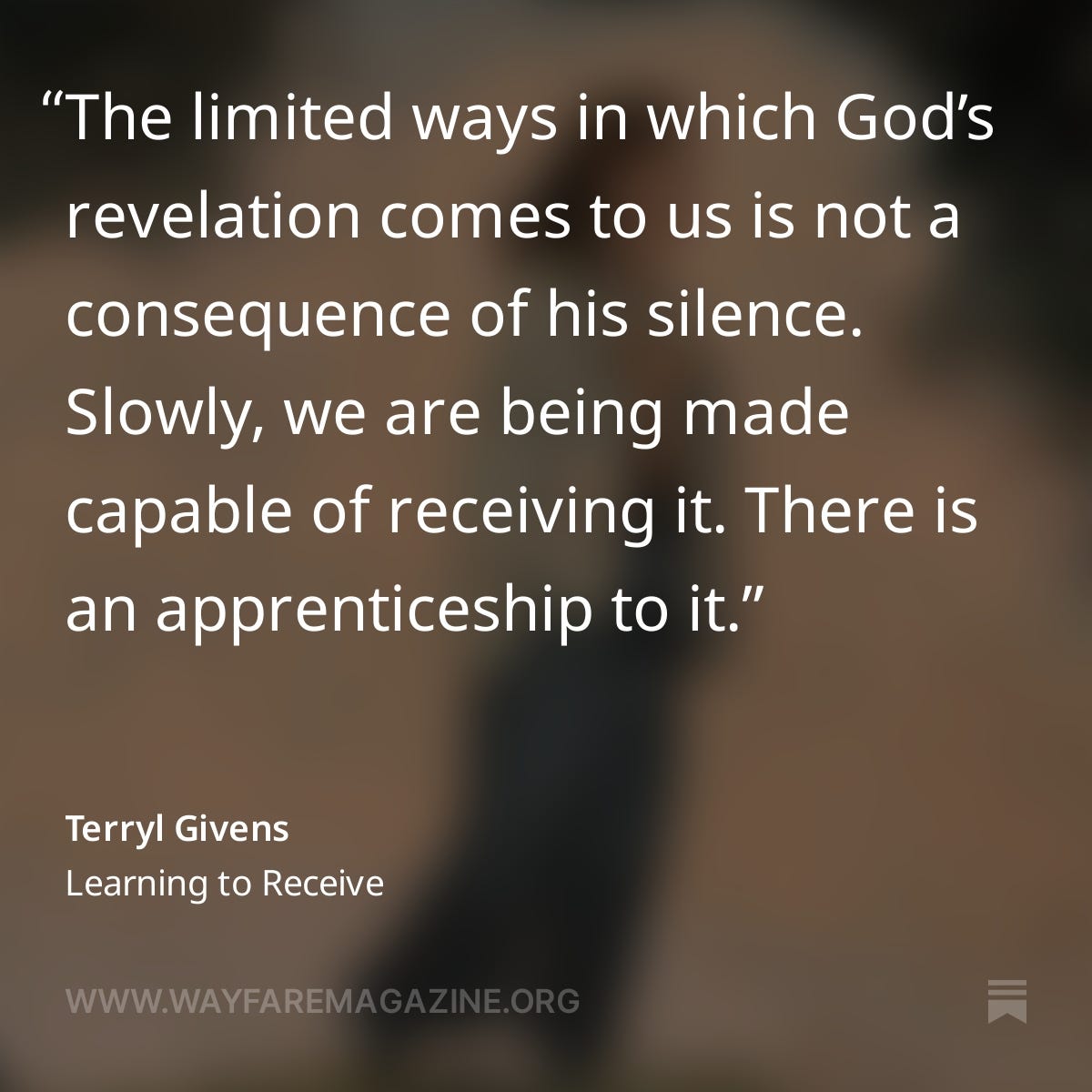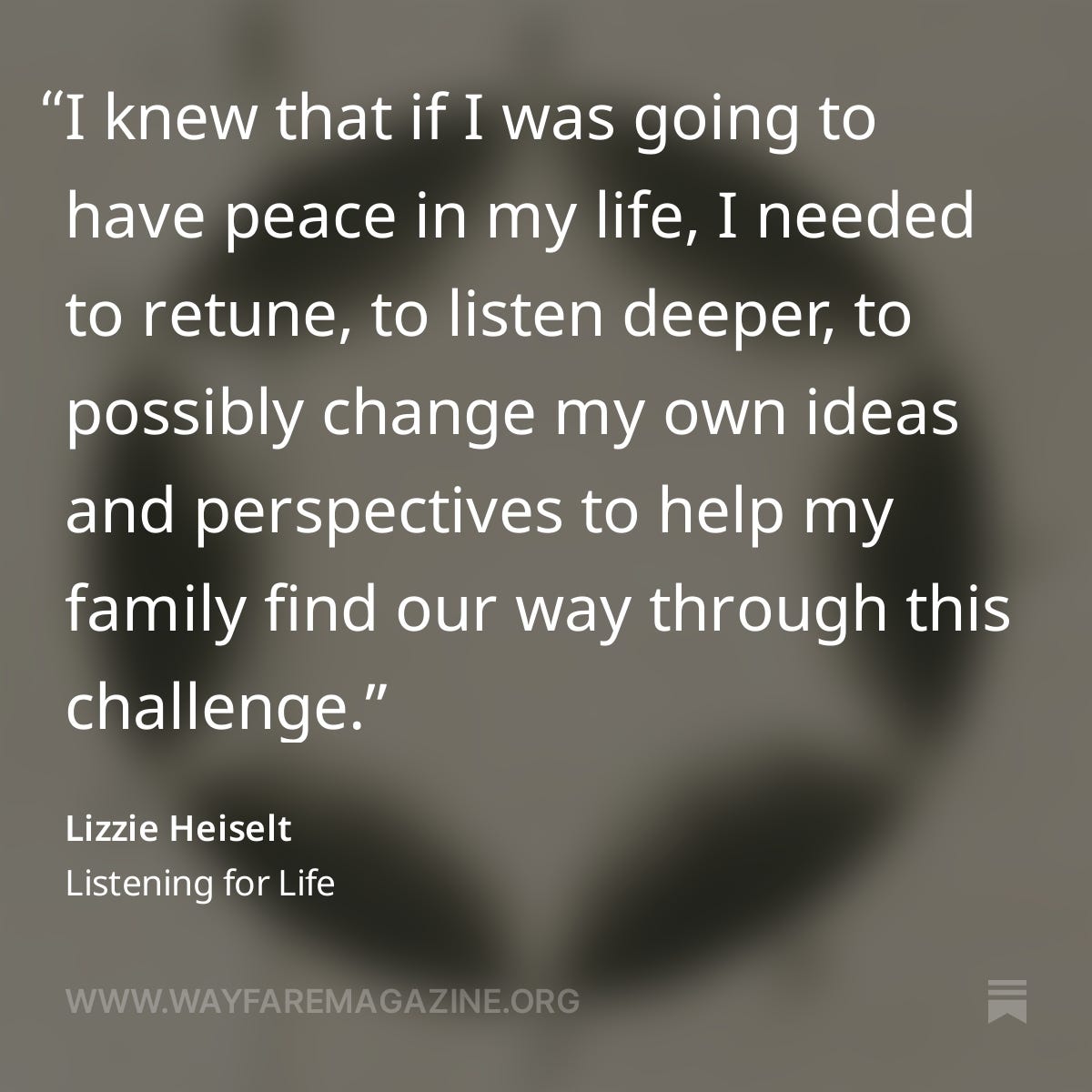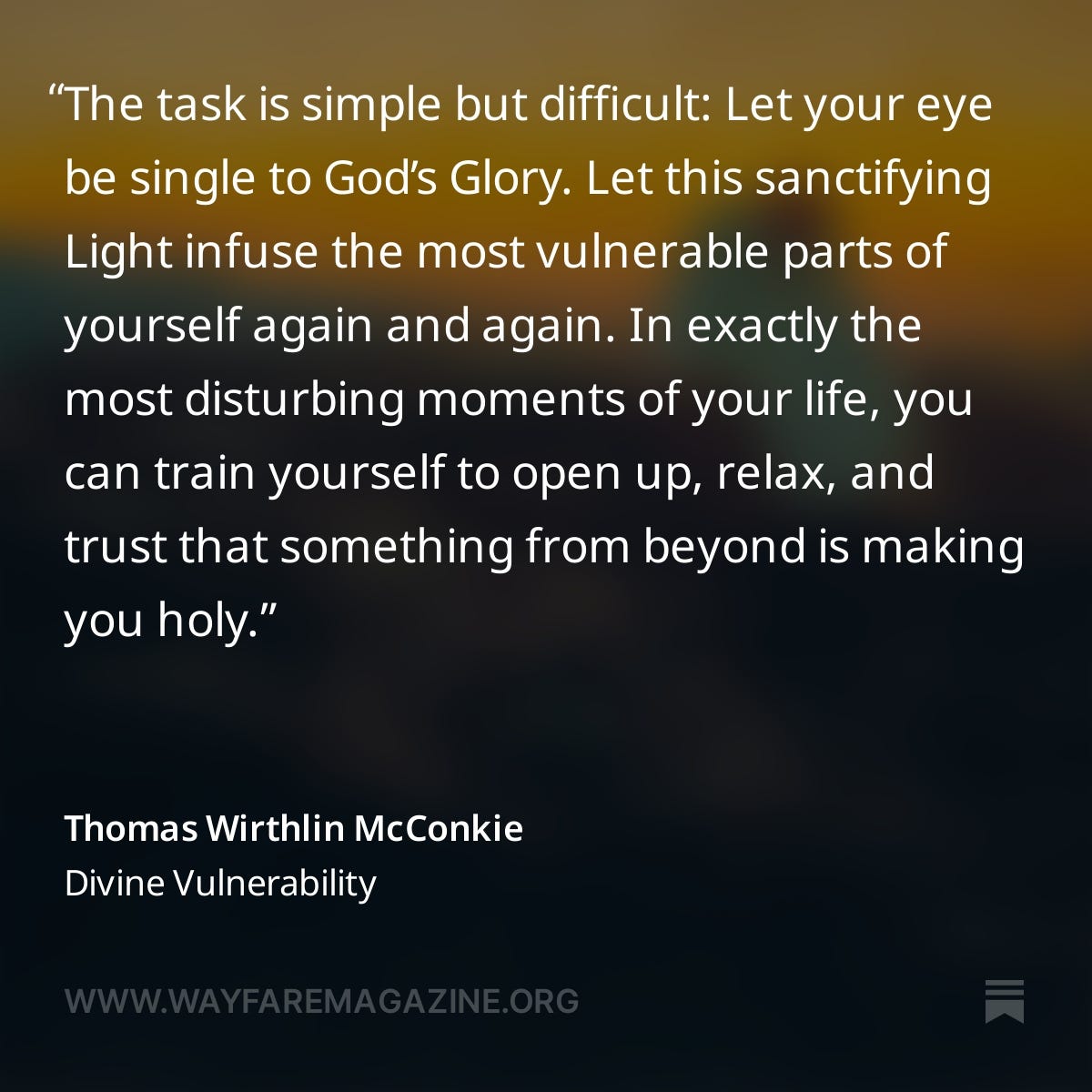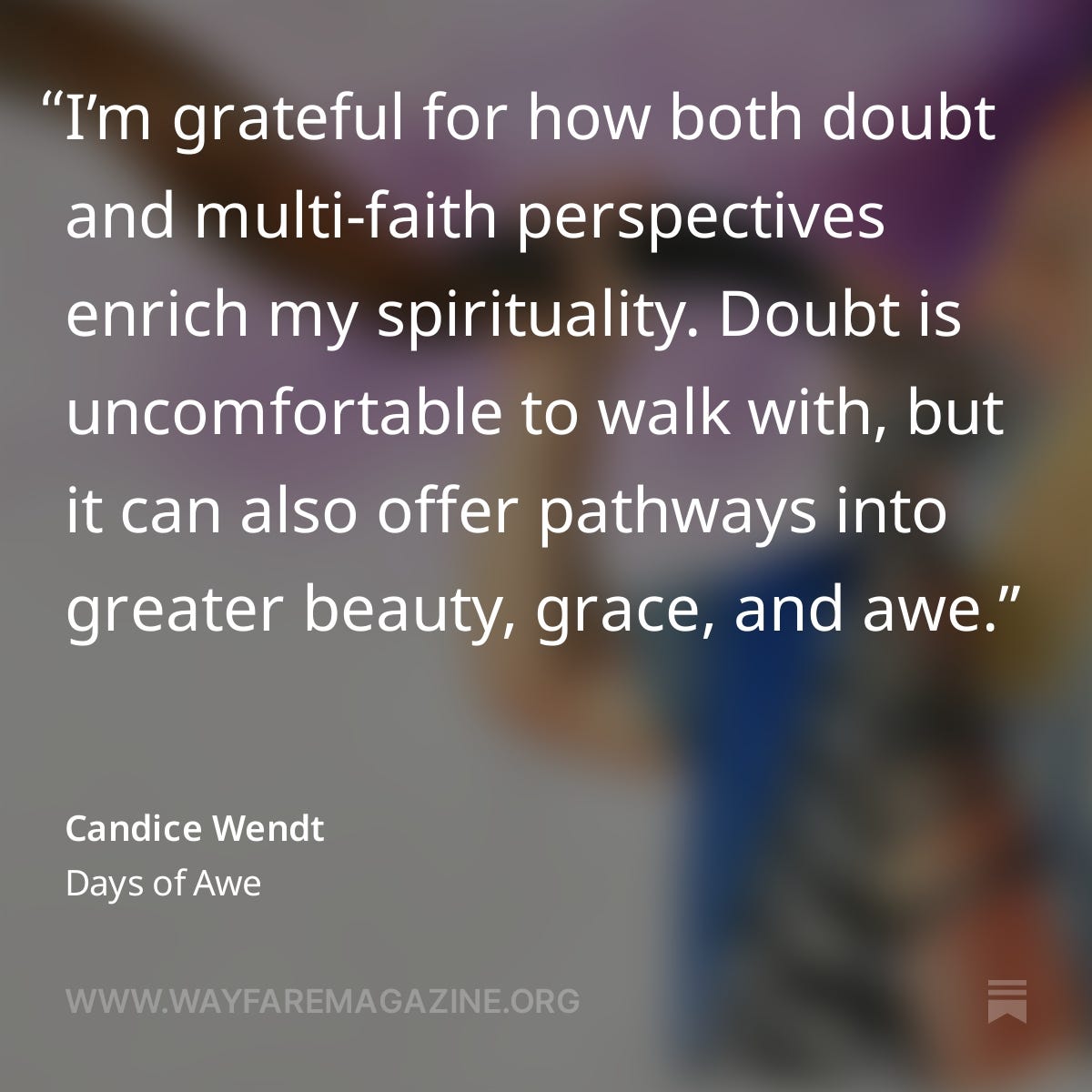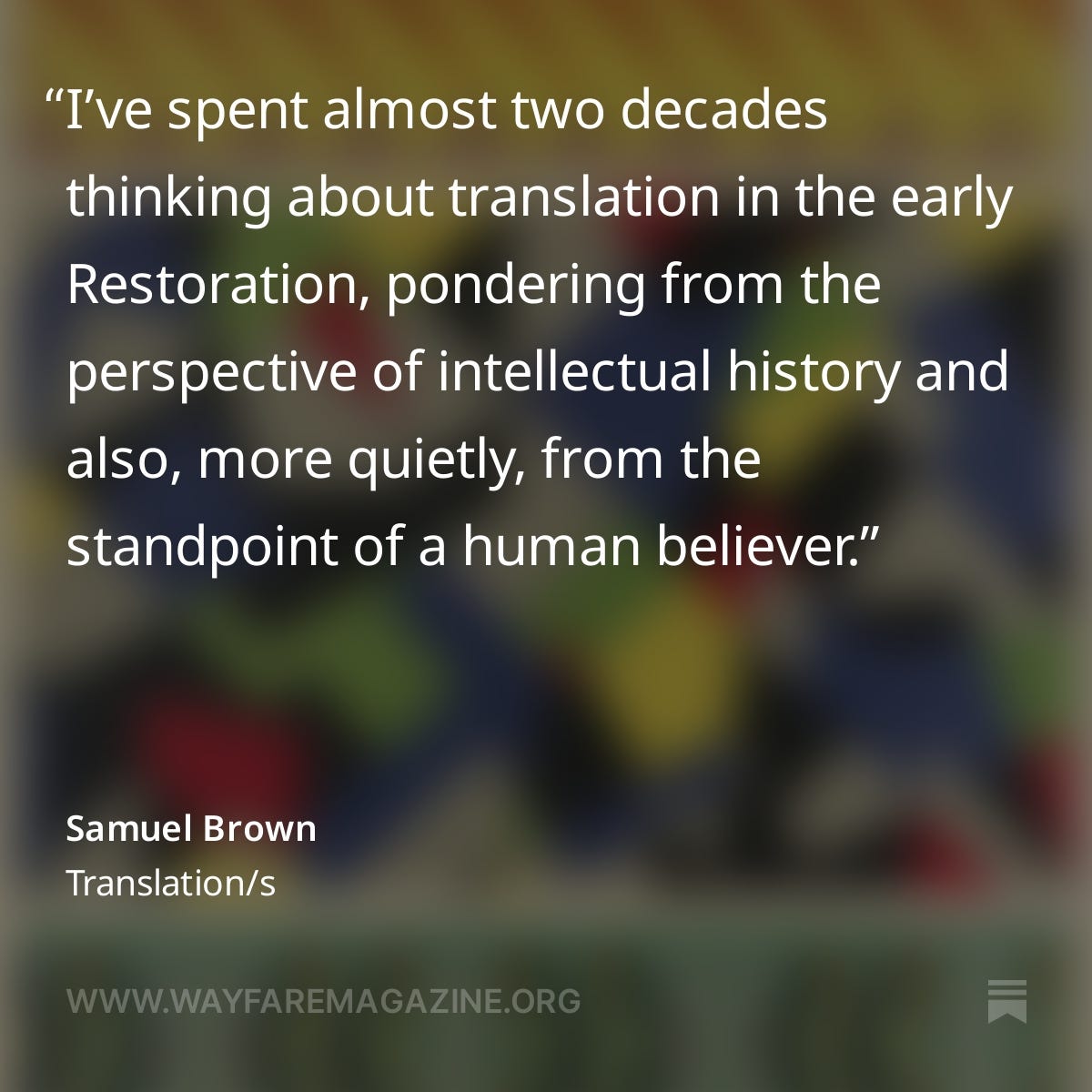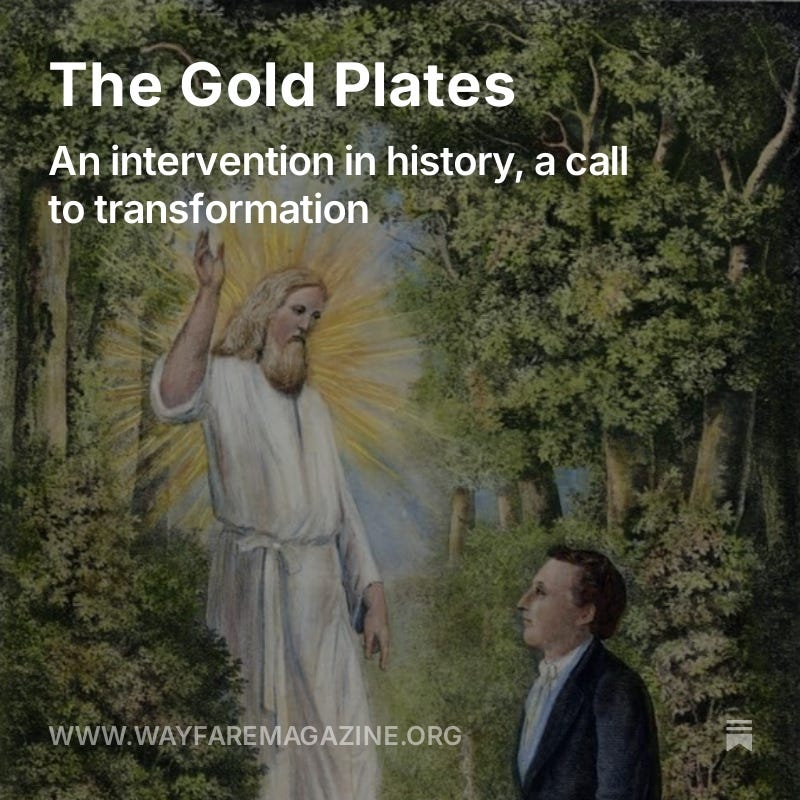How can we "fear not to do good"?
Faith Matters resources to accompany your Come Follow Me study: February 3-9

Heavenly Father speaks to me through the Holy Ghost.
Listen to “Connection Through Prayer,” our conversation with Thomas McConkie in which Thomas fuses a traditional idea of prayer with a more contemplative practice. He shares his insights on finding real connection to God through prayer, on the intersection of acceptance and seeking for specific outcomes, and perhaps most importantly, on how contemplative connection with God can help us rid ourselves of the "wrong ideas" that cause us pain.
How does our Heavenly Mother communicate with us? Hear McArthur Krishna and Bethany Brady Spalding’s thoughts in “Celebrating our Divine Mother,” Carol Lynn Pearson’s thoughts in “Finding Mother God,” and Kathryn Knight Sonntag’s thoughts in “The Mother Tree.”
Tim Chaves offers two theories of how revelation might work in “Is it ok to try to fix the church?”
In the text message theory, God sends communication similar to how we send text messages. The message is clear and free of much need for interpretation… The buffet theory stands in contrast to the text message theory. Imagine how you eat at a buffet — you make your way between tables, considering at a variety of options, until something grabs your attention and get a little nudge toward a particular item. You take some of that, because it was there, in front you, and it felt right at the time.
In the buffet theory, revelation works similarly. Our communication with God doesn’t happen in an unfiltered, clear, and contextless channel. Rather, we have in front of us a variety of options; these options could be situational, placed in front of us due to circumstances beyond our control; they could be logical, having arrived at them by study and analysis; they could be interpersonal, as we’re urged and persuaded by others to take a particular course. They could be right, or they could be wrong. We look at the available options, ask for guidance, and, hopefully, get a nudge in the right direction.
Because of Jesus Christ, I can “fear not.”

Listen to Valerie Hamaker talk about trusting God and letting go of theologies that invite fear in “Not Fearing Others’ Faith Journeys”:
Look unto Christ in every thought.
What does “doubt not, fear not” mean? In “When Church is Hard,” Tyler Johnson reminded us that different people can use “doubt” to mean very different things:
“When various people use the word doubt, they mean such dramatically different things when they use the same word that it is both enormously confusing and also deeply painful… I think there is a form of doubt that is almost gleeful about tearing down another person's belief. And that strikes me as at least unsavory, if not just spiritually destructive. But I think that there are also many people who are going through what we would often term periods of doubt, where all they're doing is just digging a deeper foundation for a more robust and resilient kind of faith to come.
Terryl Givens also writes about the differences between questions, doubts, Doubt, and cynicism in “Can Stronger Faith Emerge From The Crucible Of Doubt?”
From The Big Questions Project: I’m going through a period of serious doubt. Does doubt ever lead to greater faith, or is this likely my new normal?
“Fear not to do good.”
Listen to our conversation with Brian McLaren on his book, Life after Doom: Wisdom and Courage for a World Falling Apart. This book is an empowering call to action and an invitation to do the kind of inner work that makes us brave in the face of real fear and uncertainty. Brian asks, “What if it doesn’t turn out? How will we face the future if things get worse instead of better?” He offers gentle encouragement to reach deeper into ourselves and find a stronger, more resilient type of hope: the kind that, as Václav Havel said, “is not the certainty that things will turn out as we wish, [but] is the conviction that some things are worth doing, no matter how they turn out.” We think this episode offers real wisdom and a fresh perspective on how we can navigate these challenging times with faith, hope, and love:
And listen to wisdom from Rabbi Sharon Brous in “The Amen Effect” on being brave enough to show up for other people, even when we sometimes do this imperfectly or are afraid to say the wrong thing:
“Even as you desire of me so it shall be.”
Read a moving poem from Gideon Burton, “On God’s Silence”:
Translation of the Book of Mormon
From The Big Questions Project: How do we reconcile Book of Mormon “problems” with the claim that it is the “most correct” scriptural text? And is it essential that we see the Book of Mormon as truly historical—i.e. written by ancient writers about an ancient people? Could it be some other form of writing—inspired or otherwise?
I see divine fingerprints all over the Book of Mormon; that’s what keeps me reading. But I also see human fingerprints on it. And to recognize the mix of both I think is healthy and valuable… If we set things up from the very beginning that you’re not allowed to approach this text unless you have a bedrock testimony as certain people define it, then we have closed off the kinds of conversations that scripture in general is trying to engender. —Jared Halverson
We believe that in some way, somehow, this came from God. And people can make sense of the details as they will, but we should be able to come together and say, this text matters to us. What does it mean? And how are we best to make sense of it? —Grant Hardy
That’s probably the most embarrassing part of our story, the gold plates, which you can't see, which are no longer here… it seems like it's crazy to believe in. But the gold plates represent a part of our belief in magic. That we live in a world where, who knows when an angel will come through the door? And when they will find marvelous things that are not just something fuzzy up in heaven? —Richard Bushman
What would happen if we leaned into the strangeness of seer stones and other bewildering details of the [Book of Mormon’s] production? What if, in those disorienting details, we find help with the divine work the book’s words call us to join? What if our embarrassment and discomfort are central to the book’s purposes, a vital feature of its power to connect us to Christ, which also means to each other—the convicted and incredulous both? —James Egan
The decision to join the Church remains the single best decision I have made in my life, yet I did so largely on the basis of a mystical experience that defies rational analysis. The decision to stay fully committed to the Church is the second best decision of my life, yet it is based in large measure on my skepticism. —Thomas Griffith
To receive future posts like this in your inbox, first be sure you are subscribed to the Faith Matters Substack, then go to manage your subscription and turn on notifications for “Come Follow Me”.


